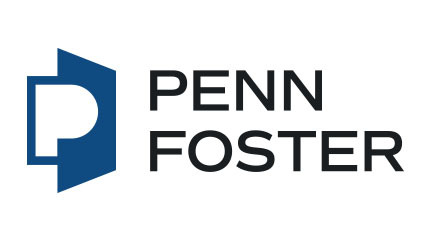Open the Door to a New Career with Penn Foster
NYICD is no longer accepting new students but you can still take the next steps toward a new career or further your education with our affordable, online sister school, Penn Foster. With over 130 years of experience in distance education and a broad range of accredited career, college, and certificate programs in in-demand fields, you can open the door to a new job, build industry-recognized skills, and take the next step toward the life you want – still completely online, at your own pace.
In-Demand Healthcare Career Training with Penn Foster
Take the first steps toward an in-demand, rewarding career in healthcare with Penn Foster. With accredited online programs in clinical and administrative roles, you can build the skills you need on your schedule, online.
Personalized Support from Experts in Your Field of Study

Once you complete NYICD’s online bookkeeper course, you’ll be qualified to take the Uniform Bookkeeper Certification examination.
You will graduate ready to enter the workforce, on your way to becoming a successful bookkeeper.
Bookkeeper Course Description
Our Bookkeeping course will teach you all the skills necessary to start a new career organizing the finances of any business you’d like to work for. From applying concepts of cash and accrual accounting to using basic internal controls to prevent theft, you’ll learn all the skills necessary to become a competent, reliable asset to any company.
Online Bookkeeping Classes
Unit 1: The Basics of General Bookkeeping
1.1 Concepts in Small Business and Self-EmploymentIn Lesson 1.1: Concepts in Small Business and Self-Employment, you’ll be introduced to the Top 10 Traits of Entrepreneurs, so you can see how many of these qualities you already possess and how many you’ll need to develop. You’ll be provided with information on a host of resources to further your study, including websites, books, communities, videos, mentors, advisors, technology, software, and live chats with experts.
In Lesson 1.2: Introduction to Bookkeeping, will give you a highly condensed overview of basic accounting and bookkeeping concepts. And since learning is often relearning, the material in this lesson should serve as a resource as you get into the details of the bookkeeper’s vital role in businesses large and small.
Lesson 1.3: Charts of Accounts and Ledgers is stacked high with lists, lists of typical accounts, and account code lists to get you familiar with different ways to interpret or set up a chart of accounts. We will also introduce making journal entries when recording sales, purchases, payments, and cash receipts.
Unit 2: The Activities of Bookkeeping
2.1 Payroll BasicsLesson 2.1: Payroll Basics focuses on payroll. You will master the concepts and procedures, such as steps in the payroll process, differentiating wages from salaries, differentiating hourly from piece-rate plans, and all the other topics associated with payroll.
In Lesson 2.2: Purchasing, Billing Activities, and Cash Management, we guide you through the procedures for making and recording purchases. We will also go over new concepts that might include an expense report or use taxes. Additionally, we will guide you on applying appropriate purchasing controls and various accounting procedures.
In Lesson 2.3: Inventory, Assets and Debt, we focus on key challenges that include mastering the differences between periodic and perpetual inventory systems, absorption and standard costing, and different approaches to calculating inventory.
Unit 3: Statements, Controls, and Records
3.1 Financial StatementsLesson 3.1: Financial Statements will help you master the process of ending an accounting period. We will also cover the preparation of financial statements and exploring the purpose of the trial balance in the accounting cycle.
In Lesson 3.2: Budgeting and Controls, we focus on budgets and controls. Here, you’ll learn how a host of budgets are constructed to organize aspects of a company’s operations. You will also gain some insight into how budgeting based on historical information can be organized as a plan for future operations as well as a system of controls that help keep company players on the same page. In addition, we will explain the nature and purpose of controls and which control options are for various operations systems.
In Lesson 3.3: Records Management and Cost Reduction, we cover specific guidelines for such things as document retention, storage area policies, storing confidential documents, and tax records. We also introduce you to techniques for setting up a cost reduction plan.
What You Get
- Instant access to high-quality course materials
- One-to-one mentorship from a professional in the field
- Video training featuring tips from industry veterans
- Certification preparation materials including free practice tests
NYICD offers convenient online training to anyone looking to gain the independence that comes with a new career. Study anytime, anywhere at your own pace and get certified in a matter of months. Call 1-800-239-9275 or enroll online today.







